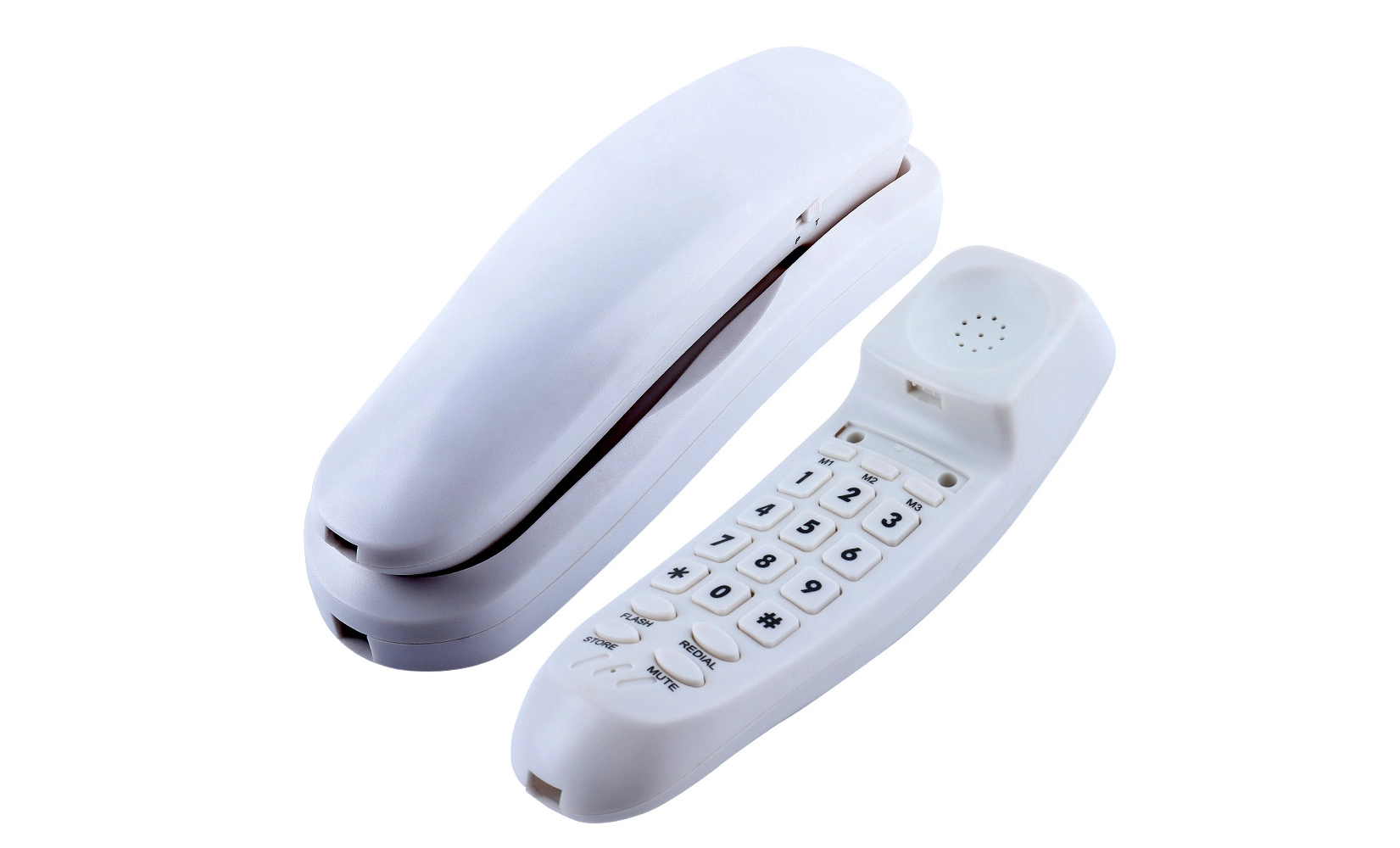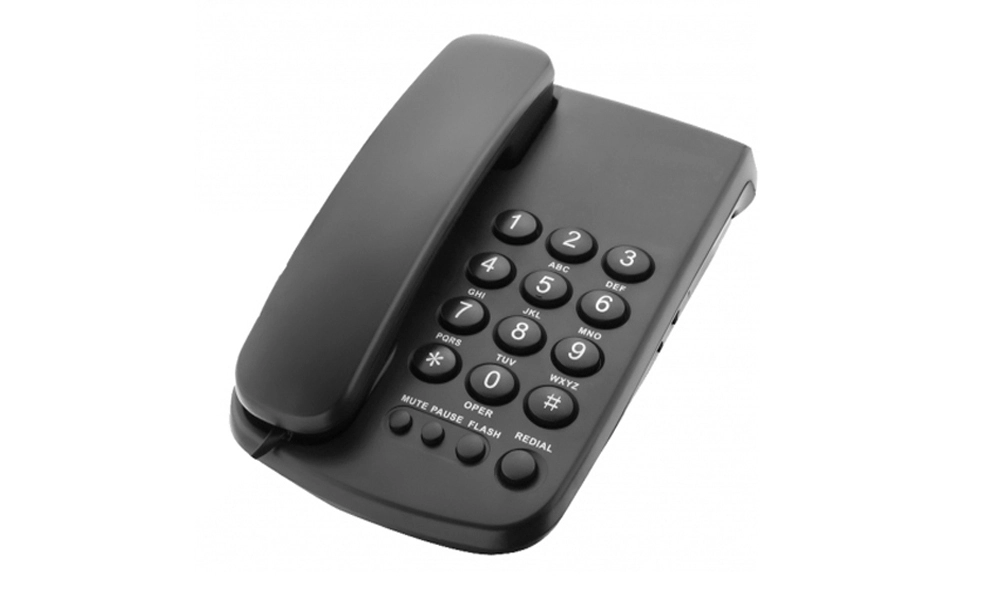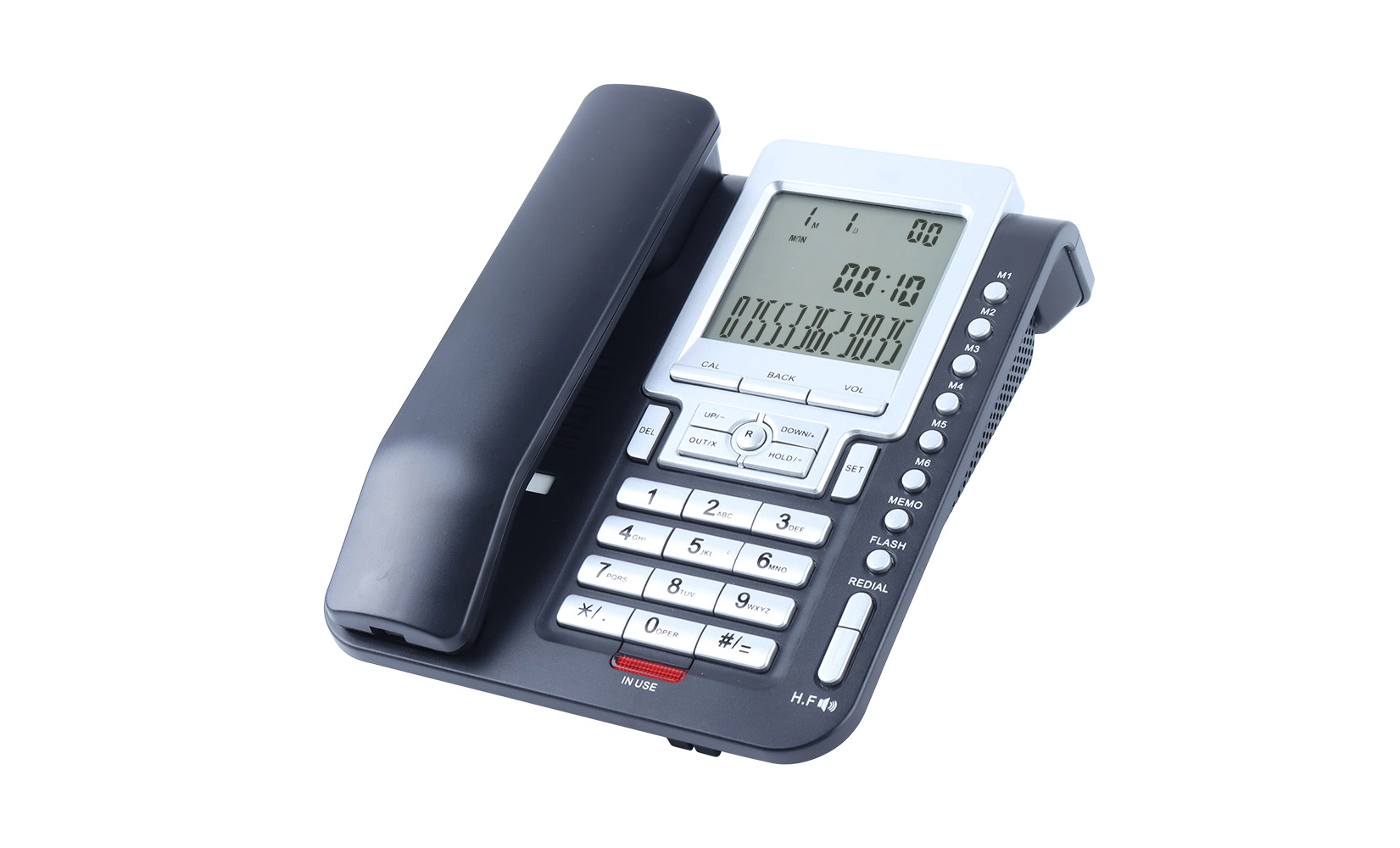Why Basic Telephone is still a smart choice today?
The basic telephone is still a good option for many people and companies in this day and age of tablets and cutting-edge technology. It is a communication tool that has stood the test of time because it is easy to use, dependable, and useful. Basic phones give you a straight link (which is often lost in our digital world), great sound quality, and the ability to work without power. They are easy for everyone to use, don't need to be plugged in to work, and are affordable. In today's complicated world of technology, basic telephones are especially useful when reliability and ease of use are important.
The Enduring Relevance of Basic Telephones in the Digital Age
Unmatched Reliability and Clarity
Basic phones have been around for a long time and are still popular because they are so clear and reliable. These devices use old analog technology, unlike newer devices that are more complex. This makes sure that even in places with bad cell service, the link stays strong. The straight line link reduces clutter, so the sound communication is very clear—often clearer than smartphones.
The software bugs and system crashes that can affect more complicated devices are also not a concern with basic telephones. Because they are so reliable, they are perfect for important contacts, like emergency services or business operations where every call matters. Because they are simple, they are more reliable overall: there are fewer things that can go wrong.
Power Outage Resilience
The ability of basic telephones to work during power blackouts is one of their most appealing benefits. This trait is very important in places where natural disasters happen often or where the power grid isn't stable. A basic telephone linked to a wire continues to function, providing a crucial source for contact and emergency services, while smartphones and cordless phones become paperweights when the power goes out.
This resolve isn't just handy; it can save your life in an emergency. For example, when cell networks are busy or not working during bad weather or other situations, basic telephones are a good way to call help or stay informed.
Cost-Effectiveness and Long-Term Value
Basic telephones offer amazing cost-effectiveness and long-term value in an age of quickly changing technology and planned obsolescence. In general, these gadgets cost less upfront than smartphones or high-tech wireless systems. Also, they don't need to be updated or replaced often to keep working, which saves a lot of money in the long run.
Basic telephones' value offer is also influenced by their longevity. A lot of models are made to last a long time with little upkeep. Basic telephones are an eco-friendly choice in our trash society because of their long lifespan, which also lowers repair costs and is in line with sustainable consumption practices.
User-Friendly Features for All Demographics
Simplicity in Design and Operation
One of the best things about basic telephones is how simple they are to use. This is especially true for groups that might have a hard time with more advanced technology. People of all ages and tech skills can use these devices because they have a simple display with a number pad and a few other buttons for basic tasks.
This ease is especially good for older people or those who have brain problems. People are less likely to get confused or annoyed because of the big, clearly written buttons and lack of hard-to-understand choices and settings. For many people, this ease of use means they can continue to be independent and stay in touch with family and friends or call for help when they need to.
Enhanced Accessibility Features
Many current basic telephones have accessibility features that help users with particular needs, despite their straightforward design. These could include: - Louder sound for people who have hearing loss
- Big screens with a lot of contrast to make reading easier
- Works with hearing aids
- Speed dial for numbers you call often
- Keypads with marks for users who can't see
These features make sure that basic telephones continue to be an accessible contact tool for a wide range of users with various needs and abilities. Adding these accessibility features shows that making things simpler doesn't have to mean taking away useful features for people who need extra help.
Reducing Technology Overload
As our world becomes more linked, a lot of people are looking for ways to spend less time on their devices and focus on what they're doing. Basic phones are a nice change from smartphones, which are always giving you alerts and too much information. They keep people connected by giving them a device for just talking, so they aren't tempted by social media, texts, or other digital distractions.
This focused way of communicating can be very helpful at work, where distractions need to be kept to a minimum in order to get things done. It can also help your mental health and work-life balance by making it easier when you're linked and when you're not.
Practical Applications in Various Sectors
Business and Professional Environments
Basic telephones still play an important role in many business and professional settings, despite the spread of digital contact tools. Customer service centers rely on these tools because they are clear and easy to use, and voice contact is very important there. Basic telephones offer a fixed line for important calls in business settings, free from the distractions and possible technology problems that come with VoIP or cell phones.
In fast-paced settings, the ease of basic telephones can also speed up conversation. For example, in healthcare settings, where quick and clear contact can be important, a basic telephone can save time compared to a more complicated system.
Hospitality and Service Industries
Basic telephones are still used in hotel rooms all over the world in the service industry. They give guests a sure-fire way to contact the front desk, make calls to another room, or get emergency services if they need to. These devices are a cost-effective choice for hotels because they are durable and easy to maintain. This means they will keep working for a long time with little help.
In the same way, basic telephones offer a reliable connection for staff and customers in restaurants, shops, and other service-oriented companies. Because they are simple, anyone can use them for smooth processes and customer service without a lot of training.
Emergency Services and Critical Infrastructure
Emergency services and vital assets are perhaps the most important applications of basic telephones. Basic telephones' dependability and ability to work without power can save lives in these areas. For constant contact during disasters, emergency call centers frequently rely on basic telephone systems.
Basic telephone systems are also used as a backup or primary method of contact in many important infrastructure facilities, including power plants, water treatment facilities, and transportation hubs. This backup makes sure that important data can still be sent if there are problems with the network or hacking attacks.
Conclusion
The basic telephone is a reminder of how important simplicity and dependability in contact are even today, as the world continues to welcome digital innovation. Its clear voice quality, ability to work without power, and ease of use make it a good choice for many uses, from personal to important business and emergency services. The basic telephone serves as a reminder that sometimes the easiest answer is the best one as we manage an ever-complicated technology environment. Basic telephones continue to play a crucial role in bringing people together and allowing crucial talks in today's world by providing a direct, reliable, and approachable means of contact.
Simple phones, smart choice backed by 18+ years' tech | CHEETA
With over 18 years of experience in OEM/ODM services, CHEETAH is a leader in the production of analog phones. Our new, 1,200-square-meter plant makes a thousand analog devices every day. One hundred skilled workers and ten top engineers make sure each unit is high quality. We are proud that our products meet CE and ROHS standards and are reliable after a strict 11-step check. We are dedicated to quality, which is why less than 1% of our work fails.
CHEETA uses advanced engineering, robotics, and quick responses to meet worldwide demand for full customization. Our goods, which range from basic telephones to cutting-edge communication tools, are made with simplicity, dependability, and usefulness in mind across a wide range of industries. If you want to know more about our new phone services, please email us at allen@cheeta.com.cn.
References
1. Smith, J. (2022). "The Resilience of Landline Telephones in the Digital Age". Telecommunications Quarterly, 45(2), 112-128.
2. Johnson, A. & Brown, T. (2021). "Basic Telephones in Emergency Management: A Case Study". Journal of Crisis Communication, 18(3), 301-315.
3. Lee, S. (2023). "User-Friendly Communication Devices for an Aging Population". Gerontechnology International, 12(1), 56-70.
4. Garcia, M. et al. (2022). "The Role of Basic Telephones in Business Continuity Planning". Business Communication Review, 33(4), 189-204.
5. Williams, R. (2021). "Comparative Analysis of Voice Quality: Smartphones vs. Landlines". IEEE Communications Magazine, 59(6), 78-85.

Kindly inform us your interested product and your detailed requirement, so that we can give you a best suggestion.

Shenzhen Cheeta Technology Co., Ltd – Leading Communication Telephone Manufacturer



